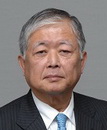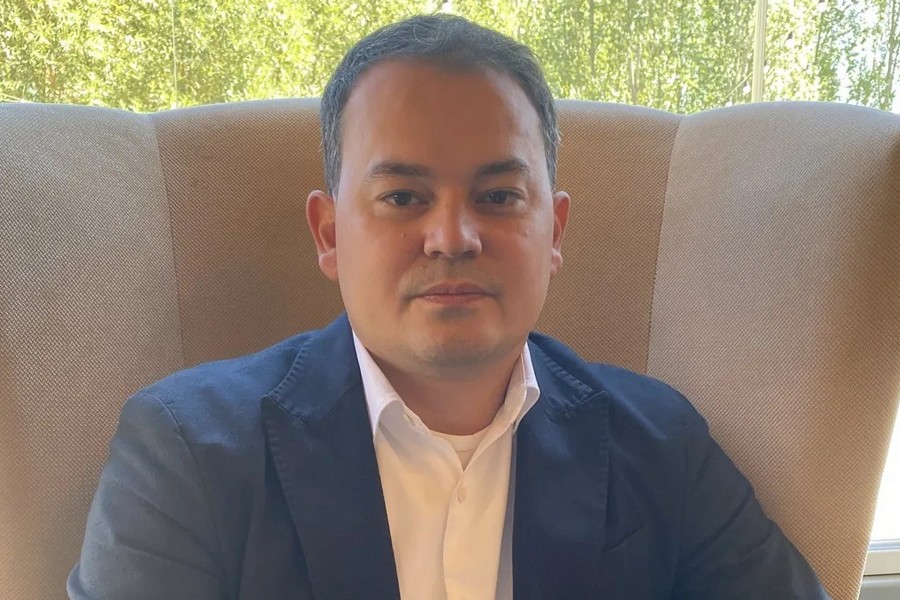Ambassador Extraordinary and Plenipotentiary of Japan to Kazakhstan Masayoshi KAMOHARA:
EXPO-2017 WILL CONTRIBUTE TO FURTHER DEVELOPMENT OF KAZAKHSTAN

Japanese investors are actively involved in a number of projects in Kazakhstan. Thanks to this fact, Japan is among the ten countries whose citizens are granted visa-free entry to Kazakhstan. In the last 17 years, Japan has financed 67 non-profit projects in Kazakhstan to the amount of over $5 million under its Grassroots program. Mr Kamohara shared his vision of the current status and prospects of bilateral relations between Kazakhstan and Japan in an interview with Interfax-Kazakhstan.
- Kazakhstan and Japan have been cooperating successfully for years. What are the most important areas of the cooperation from Japan’s point of view?
- We are cooperating in a variety of fields. We work together very well in the international organizations. Our economic ties are strengthening. I should also mention here our long-standing cooperation in the peaceful use of atomic energy. In my opinion though, our economic relations could be better. The Japanese economy has been shaken by the 2008 global crisis. Since then our companies have been very cautious about their investment. Though the crisis is not over yet, there is still great potential for us to further develop the cooperation.
- What areas of cooperation are most attractive for the Japanese investors?
- As you may know, we have very little mineral resources while your country has all of them. Our company [Inpex NorthCaspian Sea Ltd.] invests in Kashagan and other companies invest in uranium projects. In addition, Toyota launched recently a production line in Kazakhstan. All our companies are demonstrating a conscientious attitude: they are trying to create conditions to support further development of the economy of Kazakhstan. Before launching the plant in Kostanai, Toyota had sent over 20 experts to train local employees. The experts continue advising on how the production process could be improved.
- Inpex is involved in the Kashagan project. However, the situation there is quite complicated: there was the accident and oil production is now suspended. Do you think these complications will scare off the investors?
- No, I do not think so. The companies are aware of all such risks; it is not a big problem. Of course, if the oil production is not resumed in a few years, then it will be a problem.
- Recently, you met with Kazakh Senate Chairperson Kasym-Zhomart Tokayev. What are the prospects of cooperation between the Kazakh and Japanese parliaments?
- Unfortunately, the contacts between our parliaments are not frequent. Mainly, because of the geographical distance. Although, if you look at the world map you will see that our countries are not very far from each other, but they are not linked by direct regular flights. Moreover, the Japanese do not seem to know enough about Kazakhstan to generate interest in the country. Before I came here I had met a lot of people in Japan who had contacts in Kazakhstan. After talking to them, I realized that the Japanese's interest in Kazakhstan was growing thanks to the recent achievements of the Kazakh economy. Of course, I will make every effort to get a direct flight between our countries opened. This will help boost our relations and especially business relations. I do hope the direct flight will be launched by the end of my term as ambassador to Kazakhstan--this is my main goal.
- Will you please tell us about the Grassroots projects which have been underway in Kazakhstan since 1997. Why is Tokyo so focused on aid programs despite the fact that Japan itself has been recently hit by natural forces and the funds could have been used locally?
- We lost nearly everything because of the WW II. However, we managed to host Olympic Games in Tokyo in 1964 and EXPO in 1970. While building our economy, we developed a feeling that we ought to help other countries that need help. So we established cooperation with the Asian countries, especially in the Southeast Asia, and now you can see these countries developing on their own.
Today, we are helping newly independent countries, including Kazakhstan. I must say that your country has been developing so rapidly that it may not need help any more. However, there are still vulnerable groups of population. Each project does not require a great deal of money but the financial aid provided is substantial for a town or an organization. For instance, I have signed a contract to finance repairs of an old people's home with about 50 people residing there. But the living conditions in this home are far from being good--the building has not seen repairs for over ten years. Last month I was in Almaty to attend a hospice opening ceremony. The organization that runs the hospice has a shortage of money.
Of course, there were people who used to ask why we were helping so many countries. But after the [Fukushima] disaster three years ago, the same people saw that nearly all countries were ready to help us and did help. Since then, the number of such "critics" has reduced to nearly none.
- Specialists from Kazakhstan will join their Japanese colleagues in an effort to study the effects of the Fukushima accident. According to the signed memorandum, the Kazakh and Japanese scientists will be involved in feasibility studies and projects for construction of nuclear power plants. What is the status of this cooperation?
- Our government advocates for the peaceful use of nuclear energy in order to improve our environment. This is impossible to achieve without nuclear energy. Our experts are ready to provide advisory assistance, if Kazakhstan is to build a nuclear power plant [NPP] and adopt nuclear technology, to teach Kazakh personnel to operate an NPP. As I said earlier, we have been cooperating in this area for years. I attended a seminar in Kurchatov where Japanese experts met with their Kazakh colleagues to mark the twentieth anniversary of their cooperation. I met young specialists, whose fathers worked with our experts years ago. Our countries both suffered from nuclear weapons.
- Kazakhstan has introduced a visa-free regime for the countries that actively invest in our economy, including Japan. Do you think Japan could do likewise?
- We are very cautious about such things. I myself used to work at the immigration office. At that time, there were over 200 thousand illegal immigrants working in our country. There are few of them now but it all started with a visa-free regime in Japan. That is why our government is very careful about easing the entry visa requirements.
As a person who has an extensive experience in this area, I would recommend the Japanese government to shorten the period between visa application and visa issue. Today, visas are normally issued five days after application submission, which is not long. But I would like this period to become even shorter. However, it will take time to revise the procedure. In my opinion, the complicated visa requirements, as they are today in Japan, could be not applied to Kazakhstan. I wish there were a visa-free regime for the officials and diplomats and the whole visa procedure were eased in that more multiple entry visas could be issued.
- Japan once hosted EXPO and Olympic Games. Kazakhstan is to host EXPO-2017 and has bid for the 2022 Winter Olympics. There is a lot of talk now about the expediency of such big events to be held in Kazakhstan. Do you think our country is ready to host such international events?
- This is of great importance for the country. Through EXPO you will attract a lot of foreign guests, which means that more people will learn about Kazakhstan, visit the country and tell about it when back at home. Hosting such international events would contribute to further development of the country. In addition, this would be a great opportunity for Kazakhstan to become more recognizable in the world.
- Thank you for your time.
July, 2014
© 2025 Interfax-Kazakhstan news agency
Copying and use of these materials without reference to the source is prohibited
Archive





